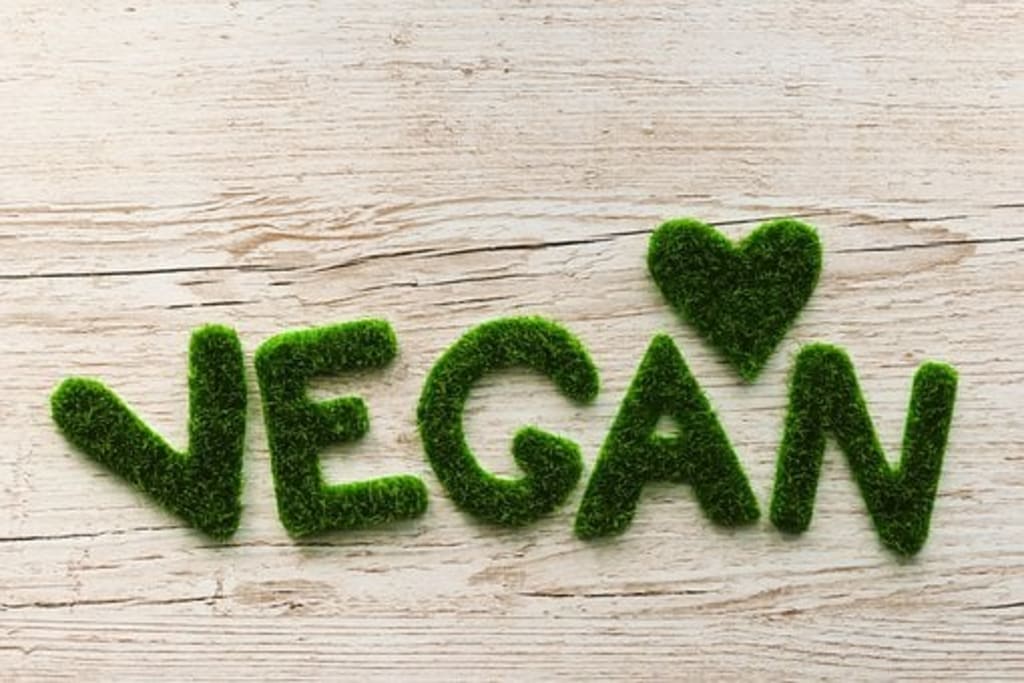
What is veganism?
Veganism is a way of living that seeks to exclude, as far as is possible and practical, the use of animals for food, clothing, or any other purpose. This means that vegans do not eat meat, poultry, fish, dairy products, eggs, or honey, and they also do not use products made from animals, such as leather, fur, silk, and wool. Veganism is a philosophy and lifestyle choice that is based on respect for animal rights and a desire to reduce animal suffering. Some people choose to be vegan for health reasons, while others do it for environmental or ethical reasons.
Origin for veganism
The concept of veganism can be traced back to ancient Indian and eastern Mediterranean societies, where some people followed plant-based diets for religious or philosophical reasons. In the modern era, the term "vegan" was coined in 1944 by a small group of vegetarians who broke away from the Leicester Vegetarian Society in the UK to form the Vegan Society. These vegetarians were seeking a more radical approach to living that avoided the use of all animal products, not just meat. The founder of the Vegan Society, Donald Watson, described veganism as "the doctrine that man should live without exploiting animals." Since then, veganism has grown in popularity as a lifestyle choice and a social movement, with people all over the world adopting vegan diets and lifestyles for a variety of reasons.
Types of veganism
Dietary veganism
Dietary veganism is a type of veganism that involves following a plant-based diet that does not include any animal products, such as meat, poultry, fish, dairy, eggs, or honey. People who follow a dietary vegan diet typically do so for health, environmental, or ethical reasons.
A vegan diet can be healthy and nutritionally adequate if it is carefully planned to include a variety of foods that provide all the nutrients that the body needs. It is important for vegans to pay attention to their intake of certain nutrients, such as protein, iron, calcium, vitamin B12, and omega-3 fatty acids, which can be more challenging to obtain from a vegan diet. However, these nutrients can be obtained from a variety of plant-based sources, and fortified foods and supplements are also available.
Some people follow a dietary vegan diet for health reasons, as a vegan diet can offer a range of health benefits, including a lower risk of heart disease, type 2 diabetes, and some types of cancer. Others choose a vegan diet for environmental reasons, as animal agriculture is a significant contributor to climate change, air and water pollution, and deforestation. Still others follow a vegan diet for ethical reasons, as they believe it is wrong to exploit and kill animals for human benefit.
Whole-food veganism
Whole-food veganism is a type of veganism that involves focusing on whole, unprocessed plant-based foods, such as vegetables, fruits, nuts, seeds, grains, and legumes. Whole-food vegans may also avoid processed foods and foods that are high in additives and preservatives.
The whole-food vegan diet is based on the idea of eating whole, unprocessed plant-based foods that are as close to their natural state as possible. This means avoiding processed foods and foods that are high in additives, preservatives, and other artificial ingredients. Whole-food vegans may also avoid refined grains, such as white flour and white rice, and choose whole grains instead.
Raw veganism
Raw veganism is a type of veganism that involves eating raw, unprocessed plant-based foods that have not been cooked or heated above 118 degrees Fahrenheit. Raw vegans may also avoid processed foods and foods that are high in additives and preservatives.
The raw vegan diet is based on the idea of eating raw, unprocessed plant-based foods that are as close to their natural state as possible. This means avoiding cooked and heated foods, as well as processed foods and foods that are high in additives and preservatives. Raw vegans may consume a variety of raw fruits, vegetables, nuts, seeds, and sprouted grains.
Following a raw vegan diet can have a range of health benefits, as it is typically high in nutrients and enzymes that may be destroyed by heat. However, it can be challenging to get all the nutrients that the body needs on a raw vegan diet, and it may be necessary to use fortified foods and supplements to ensure adequate nutrition. Some people choose to follow a raw vegan diet for health reasons, while others do it for environmental or ethical reasons.
Ethical veganism
Ethical veganism is a type of veganism that goes beyond just following a vegan diet and also involves avoiding the use of all animal products in other areas of life, such as clothing, cosmetics, and household items. Ethical vegans may also choose to avoid activities that involve the exploitation of animals, such as zoos and circuses.
Ethical vegans base their veganism on the belief that animals deserve to be treated with respect and that it is wrong to exploit and kill them for human benefit. They argue that animals are sentient beings who can experience pleasure and pain, and that we have a moral obligation not to cause them unnecessary suffering. As a result, ethical vegans strive to avoid using animal products in any area of their lives and to live in a way that causes the least harm possible to animals.
Favor of veganism
1. Animal welfare: Many vegans argue that animals deserve to be treated with respect and that it is wrong to exploit and kill them for human benefit. They argue that animals are sentient beings who can experience pleasure and pain, and that we have a moral obligation not to cause them unnecessary suffering.
2. Health benefits: Some people choose to follow a vegan diet because it can offer a range of health benefits. Vegan diets are typically high in fiber, fruits, vegetables, and other plant-based foods, which can help to reduce the risk of certain chronic diseases such as heart disease, type 2 diabetes, and some types of cancer.
3. Environmental impact: Animal agriculture is a significant contributor to climate change, air and water pollution, and deforestation. Many vegans argue that a plant-based diet is more environmentally sustainable because it requires less land, water, and other resources to produce.
4. World hunger: It takes a lot of resources to raise animals for food, including land, water, and feed. Some vegans argue that these resources could be used more efficiently to feed the growing human population, rather than being used to feed and raise animals for food.
These are just a few of the main arguments in favor of veganism. There are many other reasons why people choose to follow a vegan lifestyle, including concerns about food safety, the use of antibiotics and hormones in animal agriculture, and the protection of biodiversity.
Disadvantages to following a vegan diet or lifestyle
1. Nutrient deficiencies: A vegan diet can be nutritionally adequate if it is carefully planned to include a variety of foods that provide all the nutrients that the body needs. However, it is important for vegans to pay attention to their intake of certain nutrients, such as protein, iron, calcium, vitamin B12, and omega-3 fatty acids, which can be more challenging to obtain from a vegan diet. If these nutrients are not obtained from the diet or from fortified foods and supplements, it can lead to deficiencies.
2. Social isolation: Depending on where you live and your social circles, it can be challenging to follow a vegan diet or lifestyle. Some people may find it difficult to eat out at restaurants or attend social events where there are few vegan options available. This can lead to feelings of social isolation.
3. Cost: Some vegan-friendly foods, such as plant-based meat alternatives and specialty products, can be more expensive than their non-vegan counterparts. This can make it more challenging to follow a vegan diet on a budget.
4. Time and effort: It can take more time and effort to plan and prepare vegan meals, especially if you are cooking from scratch. This may be challenging for people who have busy schedules or limited cooking skills.
Conclusion
Veganism is a way of living that seeks to exclude, as far as is possible and practical, the use of animals for food, clothing, or any other purpose. It is a philosophy and lifestyle choice that is based on respect for animal rights and a desire to reduce animal suffering. There are a few different types of veganism, including dietary veganism, whole-food veganism, raw veganism, and ethical veganism. Veganism can offer a range of health benefits, can be more environmentally sustainable, and can be a way to reduce animal suffering. However, it is important for vegans to carefully plan their diet to ensure that they are getting all the nutrients they need, and to be prepared for challenges such as social isolation, cost, and the time and effort required to plan and prepare vegan meals.
About the Creator
vasanth kumar
iam a food blogger in india food is must.....






Comments
There are no comments for this story
Be the first to respond and start the conversation.